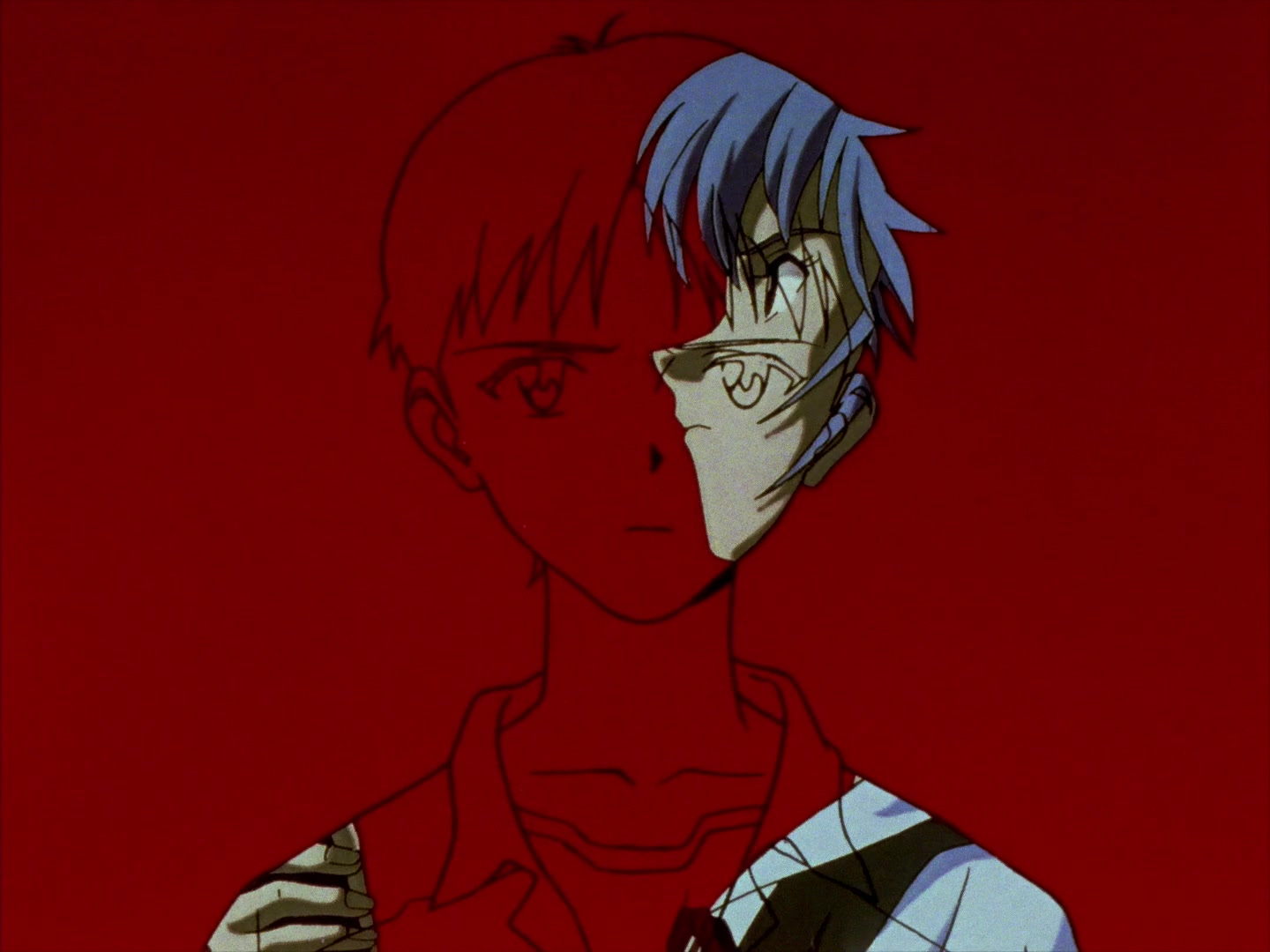Much like episode twenty-five, the Evangelion finale is basically people going around spelling out exactly what the show is saying. So… in lieu of summarizing the episode, I will summarize those points as I understand them. Here’s what Shinji discovers over the course of the process of Instrumentality:
You want others to give you value.
However, only you can give yourself value.
Your reality is the product of your interactions with the world.
It is always possible to imagine another world, another self.
Limitless freedom means lack of definition and an inability to perceive oneself.
The person who exists alone exists nowhere.
To see oneself, one requires others.
It’s okay for you to be here, but,
You have to believe that yourself, others can’t believe that for you.
Congratulations!
Or, to put more simply, human connection cannot give you what you want from it, but that does not mean that human connection gives you nothing and that you should learn to go without it.…


